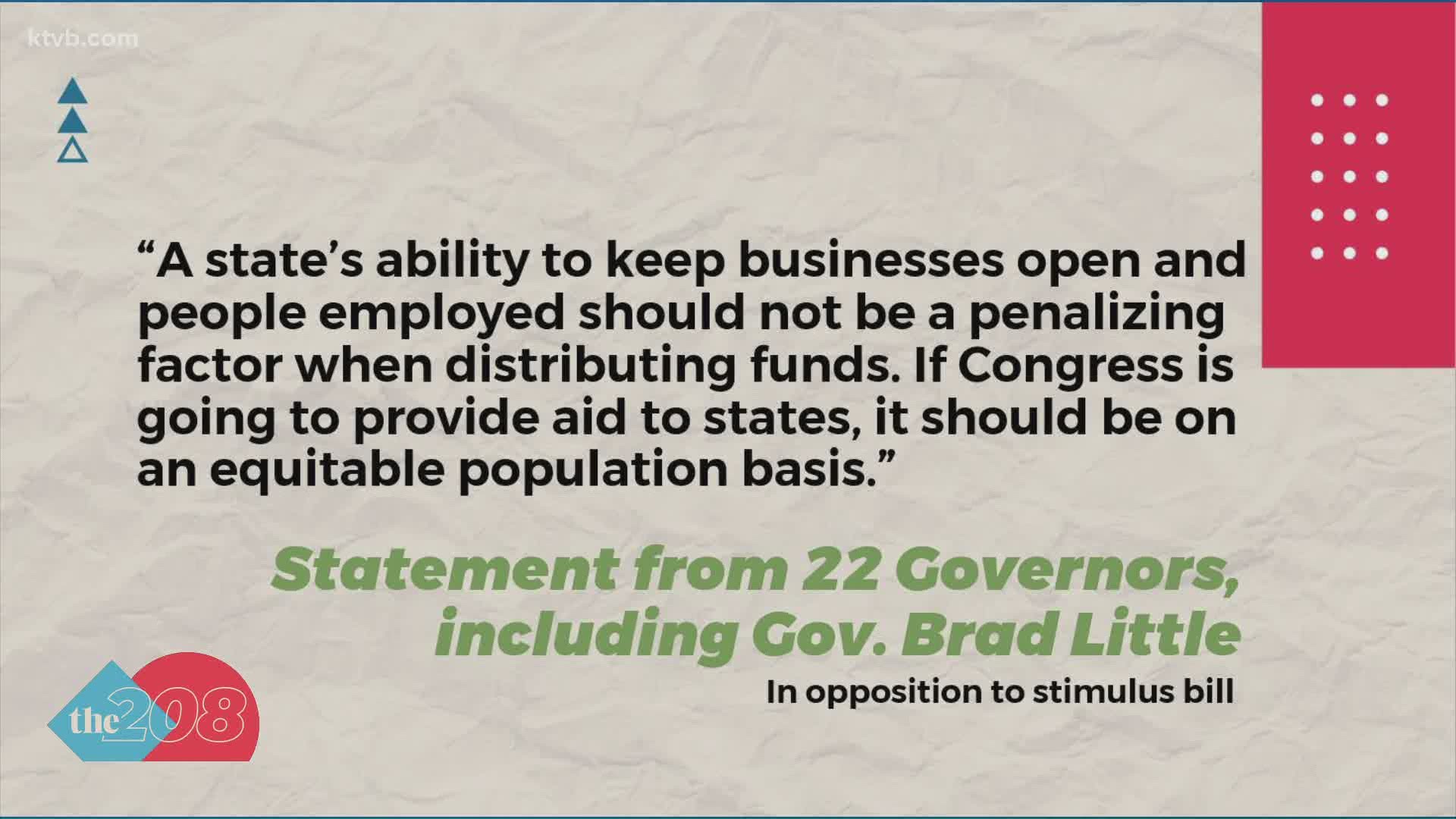BOISE, Idaho — Idaho Gov. Brad Little voiced his concerns with President Joe Biden's $1.9 trillion COVID-19 relief package, stating it would bail out "poorly-managed states" and punish those that have operated responsibly.
He claimed the proposed bill would punish states like Idaho for remaining open during the pandemic.
In a press release, Little said in part:
President Joe Biden's COVID-19 relief bill is rooted in a biased formula based on unemployment figures, not overall population. The plan rewards states experiencing "negative economic impacts." States with the most people out of work and the most poorly performing economies receive more taxpayer dollars.
That means a quarter of a billion dollars of Idahoans' federal taxes would subsidize states that have kept people out of work! States such as California, New York, New Jersey, Illinois, and others would get more than their fair share under Biden's plan.
As the other governors and I put it, the proposal "punishes states that took a measured approach to the pandemic and entered the crisis with healthy state budgets and strong economies. A state's ability to keep businesses open and people employed should not be a penalizing factor when distributing funds."
Little stated that Idaho has "the strongest economy of all 50 states," mentioning the state's record budget surplus and proposed tax relief legislation. He also stated Idaho is a "leading state" in terms of COVID-19 vaccine doses administered.
Some, including Little, have complained that Biden's bill is too broad and contains too many non-pandemic-related items.
Last week, Little joined 21 governors from unnamed states in opposing the relief bill. Led by Gov. Henry McMaster (R-South Carolina), the complaint comes from the bill basing payments to states on the unemployed population, not the general population.
"A state's ability to keep businesses open and people employed should not be a penalizing factor when distributing funds," the complaint reads in part. "If Congress is going to provide aid to states, it should be on an equitable population basis."
The complaint also claims 33 states are expected to lose funding with the bill written the way it is.
In addition to the $25.5 billion spread among the 50 states and the District of Columbia, another $168.55 billion will be divided between states based on the average estimated number of unemployed over the last three months of the year. Lawmakers will compare that to the rest of the country based on data from the Bureau of Data statistics.
Based on this information, the 22 governors were able to figure out how much money they were about to lose.
Georgia would lose the most at $1.2 billion. Idaho's loss would be the median at about $222 million, according to the House Budget Republicans.
California would gain the most at $5.4 billion.
This means states with the most people out of work during the last three months of the year would receive the most money.
"That means a quarter of a billion dollars of Idahoans' federal taxes would subsidize states that have kept people out of work," Little wrote in a release. "States such as California, New York, New Jersey, Illinois, and others would get more than their fair share under Biden's plan."
Biden's proposed COVID-19 relief bill passed the United States House of Representatives early last week. After hours of debate, the Senate voted to pass a modified version of the bill on Friday. The adjusted bill now heads back to the House, where a vote is expected on Wednesday.
Watch more Idaho politics:
See all of our latest political coverage in our YouTube playlist:

